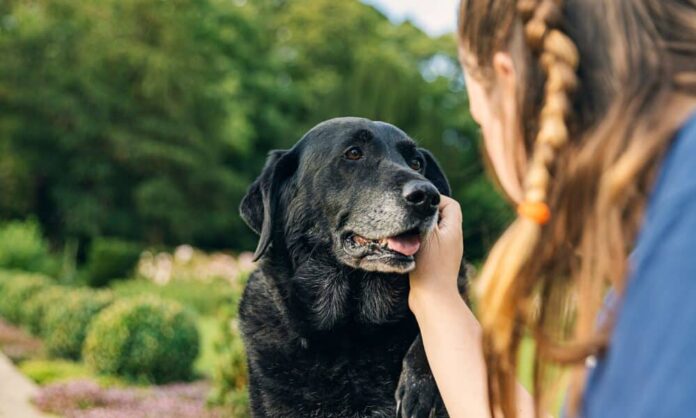Understanding Dog Dementia: A Comprehensive Guide for Pet Owners
Having a dog is a source of immense joy, but it can also come with challenges as our furry companions age. One such challenge is the increased risk of health issues, including a condition known as dog dementia, or Canine Cognitive Dysfunction (CCD). This article will take an in-depth look at dog dementia: its development, signs, symptoms, treatment options, and caregiving strategies.
What Is Dog Dementia?
Dog dementia, also known as Canine Cognitive Dysfunction (CCD), is a cognitive disorder affecting primarily senior dogs. Similar to Alzheimer’s disease in humans, it disrupts a dog’s cognitive abilities, leading to changes in behavior, learning capabilities, memory, and comprehension. Research indicates that nearly one in three dogs over the age of 11 shows clinical signs of CCD, with nearly all dogs experiencing at least one sign by the age of 16.
How Do Dogs Develop Dementia?
The aging process naturally leads to the development of dog dementia. As dogs age, their brain cells deteriorate, which impairs cognitive functions. Additionally, other factors, such as genetics or existing medical conditions like brain tumors or strokes, may also contribute to the onset of dementia.
When Does Dementia Typically Occur in Dogs?
Dementia in dogs usually begins to manifest around the ages of seven or eight, with 35% of dogs over eight years old showing signs. However, it is more common in dogs aged nine or ten and above. Each dog is unique, and the condition can develop due to various factors beyond simple aging.
Signs and Symptoms of Dog Dementia
The symptoms of dog dementia can range from mild to severe, typically worsening with time. The earlier these signs are detected, the better equipped owners will be to intervene. Key symptoms include:
- Disorientation and confusion
- Difficulty recognizing familiar faces and places
- Anxiety
- Extreme irritability
- Loss of appetite
- Aimless wandering or pacing
- Staring blankly at walls or into space
- Reduced interest in play
- Forgetfulness of learned commands or training
- Slow learning of new tasks
- Lack of self-grooming
- House soiling
- Sleeping issues, such as restlessness or vocalization at night
Treating Dog Dementia
While there is no cure for dog dementia, treatments are available to slow its progression and alleviate symptoms. These may include:
- Medication & Supplements: Various medications and supplements can help manage symptoms, but it is crucial to consult with a veterinarian for the best options tailored to your dog.
- Dietary Changes: Transitioning to a diet rich in antioxidants, Omega-3 fatty acids, and vitamins B, E, and C can support brain health.
- Life Enrichment: Establishing a consistent routine and providing mental stimulation and exercise are essential.
- Behavioral Therapy: Engaging in therapy can help manage behavioral changes and reduce anxiety.
How to Care for a Dog with Dementia
Caring for a dog with dementia requires adjustments in the home and routine to enhance their comfort and well-being. Consider the following tips:
- Install nightlights to help your senior dog navigate clearly in the dark.
- Place potty pads near doors for convenience.
- Choose an orthopedic dog bed for improved comfort and sleep quality.
- Implement gradual changes to their routine to avoid confusion.
- Avoid making drastic changes that could induce stress.
- Dementia-proof your home by removing hazards and securing food items.
- Provide love, patience, and emotional support as your dog navigates these changes.
- Schedule regular vet check-ups to monitor health and mitigate any other arising issues.
Conclusion
Managing dog dementia is a challenging yet rewarding journey. From making minor adjustments in your home to providing emotional and physical support, numerous ways exist to ensure your aged pet continues to live a fulfilling life. By fostering an environment of love, patience, and understanding, you can help your dog cope with the challenges of dementia and enrich the golden years of their life.












